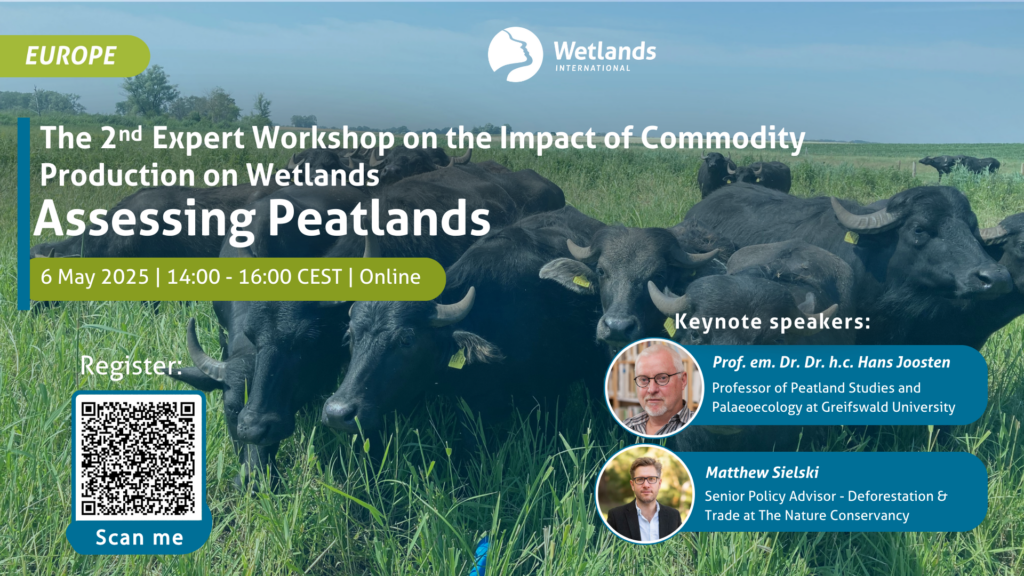
The 2nd Expert Workshop on the Impact of Commodity Production on Wetlands: Assessing Peatlands

Building on the insights from the first workshop, this follow-up workshop will focus on peatlands, with the aim to:
1) Assess whether there is enough knowledge, data, and technical information to include peatlands into the EU Deforestation-free Regulation.
2) Assess whether the EUDR is an appropriate legal tool for conserving peatlands linked to commodity supply chains and promoting paludiculture.
3) Explore alternative policy approaches that can reduce global threats to peatlands, such as trade agreements.
Follow up
The first workshop on the impacts of commodity production on wetlands, held on December 18, 2024, identified key concerns related to commodity-driven wetland conversion, legal definitions, and challenges in monitoring and traceability.
The discussions, which were divided into three groups:
- Group 1 concluded that soft commodities, e.g., beef, palm oil, rice, shrimp, timber, cocoa, and rubber, are major drivers of wetland conversion, particularly affecting peatlands, mangroves, floodplains, and marshes in regions such as Southeast Asia, Europe, Latin America, and Tropical Africa.
- Group 2 emphasized the need for a clear and comprehensive definition of wetlands and highlighted the continuous impact of drained wetlands, especially peatlands, on emissions, suggesting that the EU’s deforestation laws should potentially be extended to include wetlands. They also highlighted the challenges of establishing a cut-off date for wetland conversion and the contentious nature of setting wetland restoration targets.
- Group 3 identified that monitoring wetlands degradation is more complex than monitoring forests due to the dynamic and submerged nature of wetlands, underscoring the necessity for robust and accurate monitoring systems to track changes and degradation.
Read the full scoping paper here
